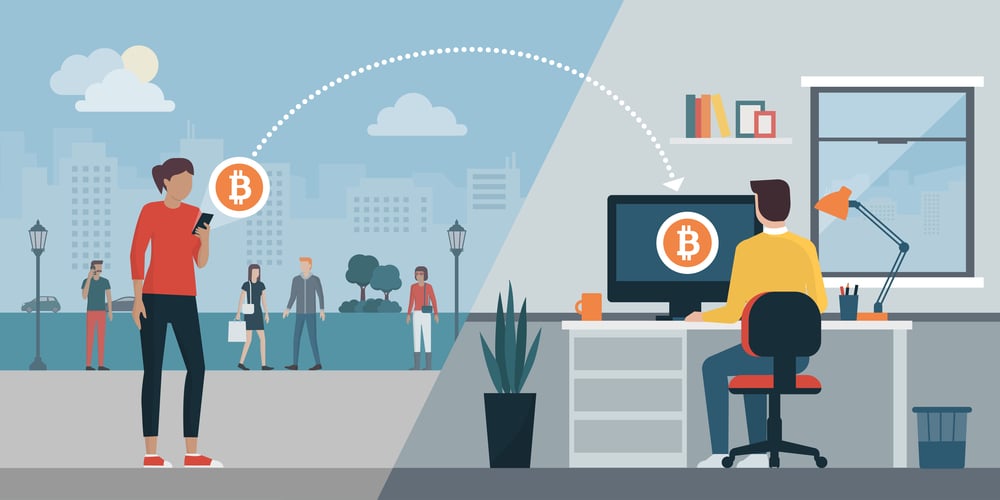Cryptocurrencies are speculative instruments, their price predicated upon future prospects rather than current reality. As a consequence, many of them don’t qualify as outright currencies – at least not yet. While the likes of bitcoin, bitcoin cash, and ethereum can be freely spent on desktop and mobile, dozens more are barely usable outside of crypto exchanges, and in some cases have been that way for years.
Spendable Cryptocurrency: Coming Soon
As everyone knows, cryptocurrencies are traded speculatively. When you buy monero on an exchange, you’re paying a price that is based less on its usefulness today, and more on what it could be worth in the future, should mass adoption of cryptocurrency occur and privacy coins prosper. There’s nothing wrong with that: most assets are subject to a prolonged period of price discovery before the market settles on a value. That’s why dot coms that have yet to turn a profit can be valued in the billions. As Eric Wall put it in his recent trading column:
The investment information you are looking for is not anywhere to be found in the charts. Rather, it’s in one’s ability to understand and visualize the future of [the cryptocurrency] market.
Cryptocurrency speculation is natural. In fact, such behavior is healthy, as it drives eventual adoption. But sooner or later, you might want to do something with the cryptos you deem as keepers, like move them off an exchange, spend them, or gift them to friends. And that’s where you start to run into problems. To gain an insight into the spendability of cryptocurrencies, news.Bitcoin.com set out to answer a simple question: How many of the top 100 cryptocurrencies can be sent to friends and family?
Mom rocks an iPhone, little bro has an Android, and dad, for some strange reason, only uses a desktop. To pass this test, a cryptocurrency must be capable of being sent and received on all three devices.
30% of Cryptocurrencies Fall Short
 As it stands, 30 out of the top 100 cryptocurrencies fail this test. (If the sample size were to be extended, the failure rate would rise further.) That doesn’t mean they’ll always be that way; some are still relatively new and are under active development. But others, such as verge, syscoin, and bytecoin, have been on the go for years, and are still no closer to securing an iOS wallet – or even an Android one in some cases. Then there’s IOTA, whose iOS wallet has been delayed for months, but is finally close to release. Whether it’s stable enough to prevent coins disappearing into the twilight zone, until they’re forcibly reattached to the tangle, remains to be seen.
As it stands, 30 out of the top 100 cryptocurrencies fail this test. (If the sample size were to be extended, the failure rate would rise further.) That doesn’t mean they’ll always be that way; some are still relatively new and are under active development. But others, such as verge, syscoin, and bytecoin, have been on the go for years, and are still no closer to securing an iOS wallet – or even an Android one in some cases. Then there’s IOTA, whose iOS wallet has been delayed for months, but is finally close to release. Whether it’s stable enough to prevent coins disappearing into the twilight zone, until they’re forcibly reattached to the tangle, remains to be seen.
In addition to recording the number of cryptocurrencies that lack a stable desktop or mobile wallet, news.Bitcoin.com calculated the average age of these projects: two years and one month. Of these, 53% lack an iOS wallet, while the remainder lack an Android and/or stable desktop wallet. For recording purposes, any ERC20 token was deemed mobile-compatible, even though many ethereum-based projects lack their own dedicated mobile wallet. A number of altcoins with their own blockchain have yet to receive proper mobile support, but Freewallethas done the honors for Android users, with varying degrees of success.

Verdict: Must Do Better
Having a mobile wallet isn’t the holy grail of cryptocurrencies, and many of the coins in the top 100 aren’t designed as outright currencies. But for them to be usable in whatever purpose they’ve been assigned – utility token; security; equity – they need to work reliably on desktop and mobile. For so long as users are downloading beta wallets from Github repositories, the cryptocurrency revolution will remain on ice. Only once cryptos become easily spendable, with a velocity to match, will real progress have been made. Store of value or medium of exchange, it makes no difference. 70% of cryptocurrencies currently pass the test. 30% must do better.
Do you think mobile compatibility is important for cryptocurrencies, or is it unimportant at this stage? Let us know in the comments section below.
Images courtesy of Shutterstock.
Source : news.bitcoin.com
No comments:
Post a Comment